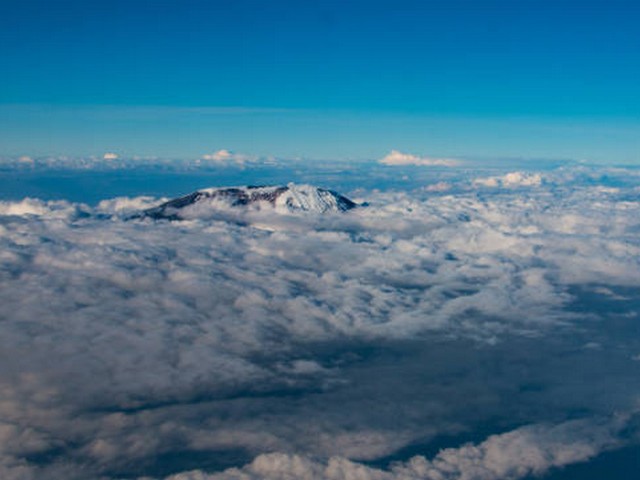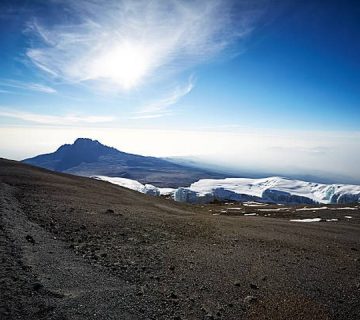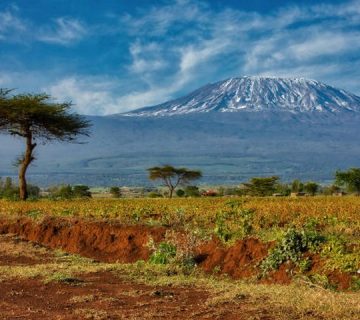Responsible Travel On Kilimanjaro: What You Need To Know
Unveiling the Majesty of Responsible Trekking
Mount Kilimanjaro – a name that sparks a blend of awe, curiosity, and respect in the hearts of adventurers around the globe. As the highest peak in Africa, Kilimanjaro is not just a mountain; it’s a beacon of natural wonder, drawing thousands of trekkers each year to experience its snowy summit and breathtaking vistas. But with great popularity comes great responsibility. At Kilimanjaro Centre for Trekking and Ecotourism (KCTE), we understand that responsible travel is key to preserving Kilimanjaro’s beauty and integrity for generations to come. In this post, we’ll explore what responsible travel on Kilimanjaro entails and how you can contribute to this noble cause while embarking on the adventure of a lifetime.
The Pillars of Responsible Trekking
Respect for Environment
Kilimanjaro’s unique ecosystems are delicate. From the dense rainforests at its base to the alpine desert near its peak, the mountain is home to a diverse range of flora and fauna. As responsible trekkers, it’s crucial to minimize our environmental impact. This includes sticking to designated trails, carrying out all trash, and avoiding any disturbance to wildlife. At KCTE, we ensure that all our guides and porters are trained in sustainable practices, making sure that we leave the mountain as pristine as we found it.
Support for Local Communities
The communities surrounding Kilimanjaro play a vital role in the conservation of the mountain and are an integral part of the trekking experience. Responsible travel means engaging with these communities in a way that respects their cultures and contributes economically. KCTE proudly hires local guides and staff, not only providing employment but also ensuring that our clients gain authentic insights into the local culture. Additionally, we source supplies from local vendors whenever possible and support community projects that contribute to sustainable development.
Health and Safety Practices
Ensuring the health and safety of both trekkers and the mountain crew is fundamental. On Kilimanjaro, this starts with proper acclimatization to prevent altitude sickness and extends to maintaining clean, hygienic campsites. KCTE adheres to strict safety protocols and regularly trains its team on emergency response techniques. We also equip our treks with essential medical supplies and ensure that our guides are certified in wilderness first aid.
Planning Your Trek: Tips for Responsible Travel
Choose the Right Operator
When planning your Kilimanjaro adventure, selecting the right tour operator is crucial. Look for companies that emphasize sustainable practices and community involvement — like KCTE. We are committed to responsible tourism and offer various routes and packages tailored to provide an unforgettable yet conscientious climbing experience.
Pack Wisely
Packing for a trek can greatly influence your environmental footprint. Opt for reusable water bottles, solar chargers, and biodegradable toiletries. Lightweight, durable clothing and equipment reduce your load and the strain on porters who will carry your gear. Remember, every item you bring impacts the mountain.
Embrace Local Culture
Kilimanjaro is not just a climb; it’s an opportunity to experience rich local traditions. Take time to learn basic greetings in Swahili, understand local customs, and interact respectfully with the people you meet. This enriches your journey and fosters mutual respect and understanding.
Why Trek with Kilimanjaro Centre For Trekking and Ecotourism (KCTE)?
At KCTE, we don’t just guide you to the top; we ensure that your journey up Kilimanjaro is beneficial to both you and the mountain. Our commitment to responsible tourism and exemplary service makes us the preferred choice for trekkers who care about their environmental and social impact. Here’s why booking with us makes a difference:
- Expert Local Guides: Our experienced guides are passionate about Kilimanjaro and committed to your safety and enjoyment.
- Sustainable Practices: From waste reduction to supporting local economies, our operations are designed to protect and preserve.
- Customized Experiences: Whether you’re a seasoned climber or a first-timer, we offer tailored treks that meet your needs and expectations.
Preserving the Beauty of Kilimanjaro
As guardians of this majestic mountain, we have a collective responsibility to ensure that our adventures do not detract from its splendor. By choosing to travel responsibly, you contribute to conservation efforts and help secure the future of Kilimanjaro for those who wish to follow in your footsteps.
Conclusion: Answer the Call of Kilimanjaro
Kilimanjaro beckons not just as a challenge to be conquered but as an opportunity to engage with the world in a meaningful, sustainable way. By embracing the principles of responsible travel, you can enjoy a truly transformative experience that aligns with the values of conservation and community support.
Ready to embark on a responsible trekking adventure on Kilimanjaro? Contact Kilimanjaro Centre For Trekking and Ecotourism (KCTE) today, and let us help you plan a journey that’s as rewarding as it is unforgettable.
FAQs
Q1: What is the best time of year to climb Kilimanjaro?
A1: The best times are during the dry seasons, from late June to October and from late December to mid-March.
Q2: How fit do I need to be to climb Kilimanjaro?
A2: Climbing Kilimanjaro is challenging but achievable with proper preparation. We recommend engaging in cardiovascular and strength training exercises several months before your trek.
Q3: What should I do to minimize my environmental impact while trekking?
A3: Stick to trails, carry out all your trash, use eco-friendly products, and avoid single-use plastics.
Q4: How does KCTE support local communities?
A4: We hire locally, source goods locally, and actively participate in community initiatives aimed at sustainable development.
Your journey up Kilimanjaro can be a powerful force for good. Let’s make it count!




